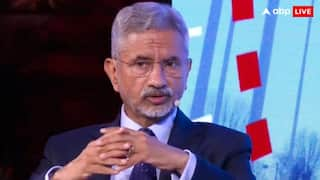RBI Article Disputes IMF's Concerns Over India's Debt Levels
The article projects a decline in India's general government debt-GDP ratio to 73.4 per cent by 2030-31, which is 5 percentage points lower than the IMF's estimated trajectory of 78.2 per cent

Reserve Bank of India's (RBI's) Deputy Governor Michael Debabrata Patra, co-authored with others, has released an article disputing the International Monetary Fund's (IMF) analysis of India's general government debt. The article, titled 'The Shape of Growth Compatible Fiscal Consolidation,' argues that the debt-GDP ratio could be lower than projected by the IMF.
Highlighting empirical evidence, the article states the benefits of prudent fiscal consolidation and growth in the medium term, outweighing short-term costs. It suggests that investments in social and physical infrastructure, climate mitigation, digitalisation, and labour force skilling can lead to sustained economic growth.
Published in the RBI's February Bulletin, the article projects a decline in India's general government debt-GDP ratio to 73.4 per cent by 2030-31, which is 5 percentage points lower than the IMF's estimated trajectory of 78.2 per cent. This projection is particularly significant as global debt-GDP ratios are expected to rise for advanced economies and emerging and middle-income countries. The article rejects the IMF's assertion that India's debt-GDP ratio would surpass 100 per cent in the medium term due to historical shocks, arguing against the need for further fiscal tightening.
According to the article's baseline projection, the debt-GDP ratio is expected to decline steadily, reaching 77.4 per cent by 2030-31. However, the RBI clarifies that the views expressed in the article belong to the authors and not necessarily to the RBI itself.
In other fiscal news, India's Interim Budget for 2024-25 forecasts the gross fiscal deficit of the Union government at 5.1 per cent of GDP, aligning with the target of 4.5 per cent of GDP by 2025-26. The article also notes a sustained focus on capital expenditure post-pandemic, with its share of GDP increased to 3.4 per cent. This analysis by RBI officials underscores ongoing discussions about India's fiscal policy and its implications for economic growth and stability.





































